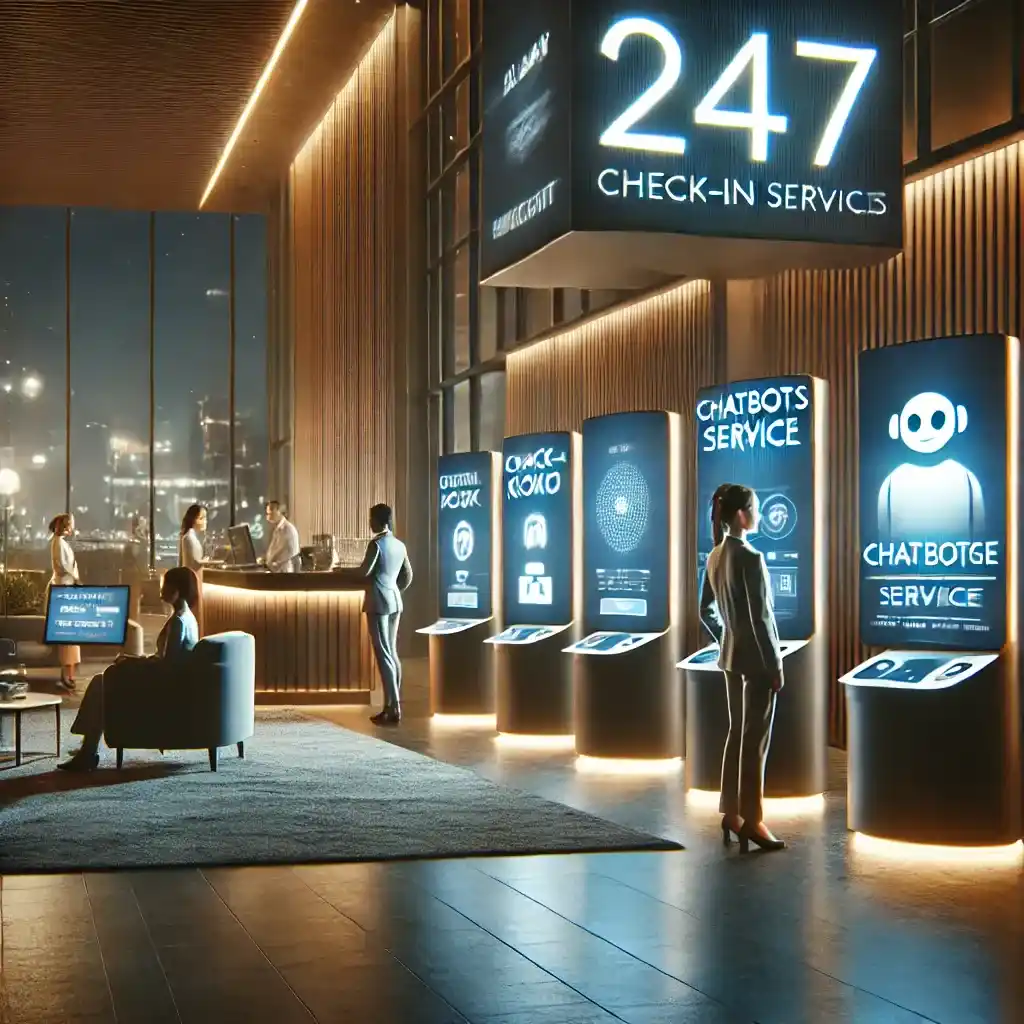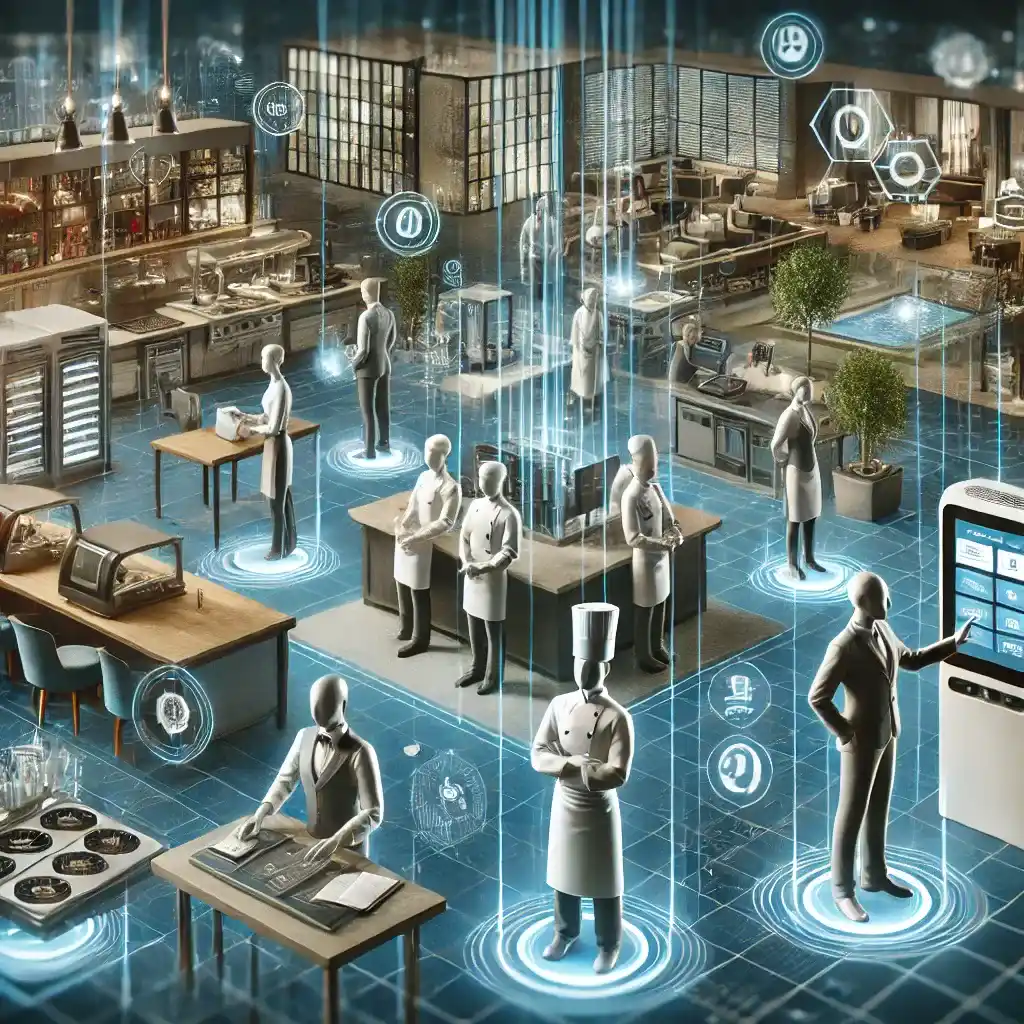Table of Contents
In today’s fast-paced world, the hospitality industry is undergoing a significant transformation, driven by the integration of automation. Automation in Hospitality is not just a trend—it’s a game-changer that enhances operational efficiency, elevates guest experiences, and drives innovation across the sector. From seamless check-ins to personalized services, automation is reshaping how hotels, restaurants, and other hospitality businesses operate.
In this article, we’ll explore 10 key advantages of implementing automation in hospitality, along with best practices that can help you maximize its potential. Whether you’re looking to improve customer satisfaction, streamline operations, or stay ahead of the competition, understanding the power of automation will be essential to your success.
What is Automation in Hospitality?
Automation in hospitality refers to the use of advanced technology to simplify, optimize, and enhance various aspects of hotel and service operations. This can range from automated check-in and check-out processes to AI-driven systems that personalize guest interactions and offer tailored services.
By automating repetitive tasks, such as room assignments or billing, hospitality businesses can reduce manual labor, increase efficiency, and allocate more time and resources to creating memorable, personalized experiences for guests. The ultimate goal of automation in hospitality is to improve operational efficiency while maintaining and elevating the quality of guest service.
10 Advantages and Best Practices
1. Streamline Front Desk Operations
Automation in Hospitality transforms the check-in process into a seamless experience. With mobile check-ins, self-service kiosks, and advanced security features like ID verification integrated into a hotel PMS, guests can bypass long lines and start their stay hassle-free. This not only improves guest satisfaction but also reduces the workload on staff, allowing them to focus on more personalized service.
2. Boost Staff Productivity
Automation in Hospitality can be a game-changer, especially in the face of staffing challenges. For instance, automated housekeeping systems streamline room assignments and updates, ensuring that resources are used efficiently. By automating these tasks, hotels can maintain high service standards even with limited staff.
3. Power Insightful Data Analytics
Hotels generate vast amounts of data daily. AI-powered automation tools can process and analyze this data to uncover valuable insights. These insights help optimize revenue management, tailor marketing campaigns, and identify trends that drive growth. For example, AI can analyze booking patterns and suggest targeted promotions to fill vacancies and maximize revenue.
4. Fuel Greater Loyalty
Automation in hospitality enables hotels to offer personalized experiences that delight guests. By storing and integrating guest preferences into the system, hotels can anticipate needs and create memorable experiences, such as greeting guests by name and preparing their rooms just as they like them. This level of personalized service fosters loyalty and encourages repeat visits.

5. Keep a Pulse on Guest Preferences and Feedback
With automation, hotels can quickly gather and act on guest feedback. Automated systems prompt guests to leave reviews and flag issues in real-time, allowing for a swift resolution. This proactive approach improves guest satisfaction, boosts online ratings, and drives more bookings.
6. Elevate Hotel-Guest Communication
AI-powered messaging systems enhance communication by breaking down language barriers and providing instant responses to guest inquiries. Whether it’s via SMS or WhatsApp, guests can communicate in their preferred way, while AI handles repetitive queries, allowing staff to focus on more complex needs. This results in a more responsive and personalized guest experience.
7. Increase Upsells
Integrated with hotel management systems, AI can identify upsell opportunities within guest communications. By offering personalized add-ons and packages that align with guest interests, hotels can increase revenue without being pushy. This intelligent approach to upselling not only boosts profits but also enhances the guest experience.
8. Save Money
Automation in hospitality reduces labor costs by handling repetitive tasks automatically. Additionally, AI-driven predictive maintenance prevents costly equipment downtime, and automated energy management systems optimize resource usage, further cutting costs while maintaining service quality.
9. Reduce Carbon Footprint
Automation in Hospitality also contributes to sustainability. By digitizing communications and using mobile key technology, hotels can significantly reduce paper and plastic waste. Automated energy systems ensure that lights and climate controls are used only when needed, minimizing environmental impact.

10. Ensure 24/7 Availability
Automation in Hospitality ensures that guests receive support around the clock. Digital check-in options, chatbots, and virtual concierge services provide instant assistance at any time, improving guest satisfaction and ensuring that even late-night arrivals are smooth and efficient.
FAQs
1. How Does Automation Benefit the Hospitality Industry?
Automation in hospitality empowers hotel and restaurant operators to streamline operations and enhance productivity. By utilizing advanced technology to manage routine tasks, staff are freed up to focus on delivering exceptional customer service, reducing the burden of manual labor.
2. What Are the Key Benefits of Automation in Hospitality?
Automation in hospitality offers numerous benefits, including:
- Reduced Manual Errors: Automation minimizes human errors, leading to more accurate operations.
- Improved Productivity: With automation handling repetitive tasks, staff productivity increases.
- Rapid Reactions: Automated systems enable quicker responses to guest needs and operational demands.
- Boosted Morale and Teamwork: By reducing tedious tasks, automation allows staff to focus on meaningful work, enhancing morale and collaboration.

- Cost Savings: Automation cuts costs by improving efficiency and reducing the need for excessive labor.
- Optimized Skillsets: Employees can focus on high-value tasks, utilizing their skills more effectively.
- Improved Operational Efficiency: Streamlined processes lead to smoother operations and better guest experiences.
- Data-Led Insights: Automation provides valuable data insights that drive informed decision-making.
3. What Is the Main Goal of Automation in Hospitality?
The primary goal of automation in hospitality is to enhance efficiency, accuracy, and speed in business processes. This leads to increased productivity, reduced costs, and an overall improvement in the quality of service provided to guests.
Conclusion
Automation in hospitality is not just a technological advancement; it’s a strategic approach that transforms how hotels and restaurants operate. By embracing automation, the hospitality industry can achieve remarkable improvements in efficiency, accuracy, and productivity, all while providing superior service to guests. The key benefits—from reduced manual errors to data-driven insights—highlight the profound impact that automation can have on both day-to-day operations and long-term success.
As the industry continues to evolve, those who leverage automation effectively will not only streamline their processes but also enhance guest experiences, ensuring they stay competitive in an increasingly dynamic market.